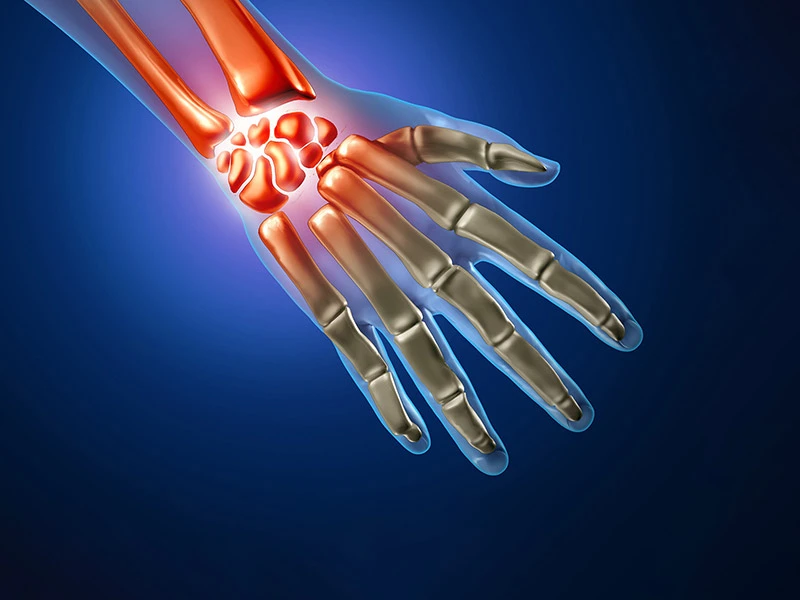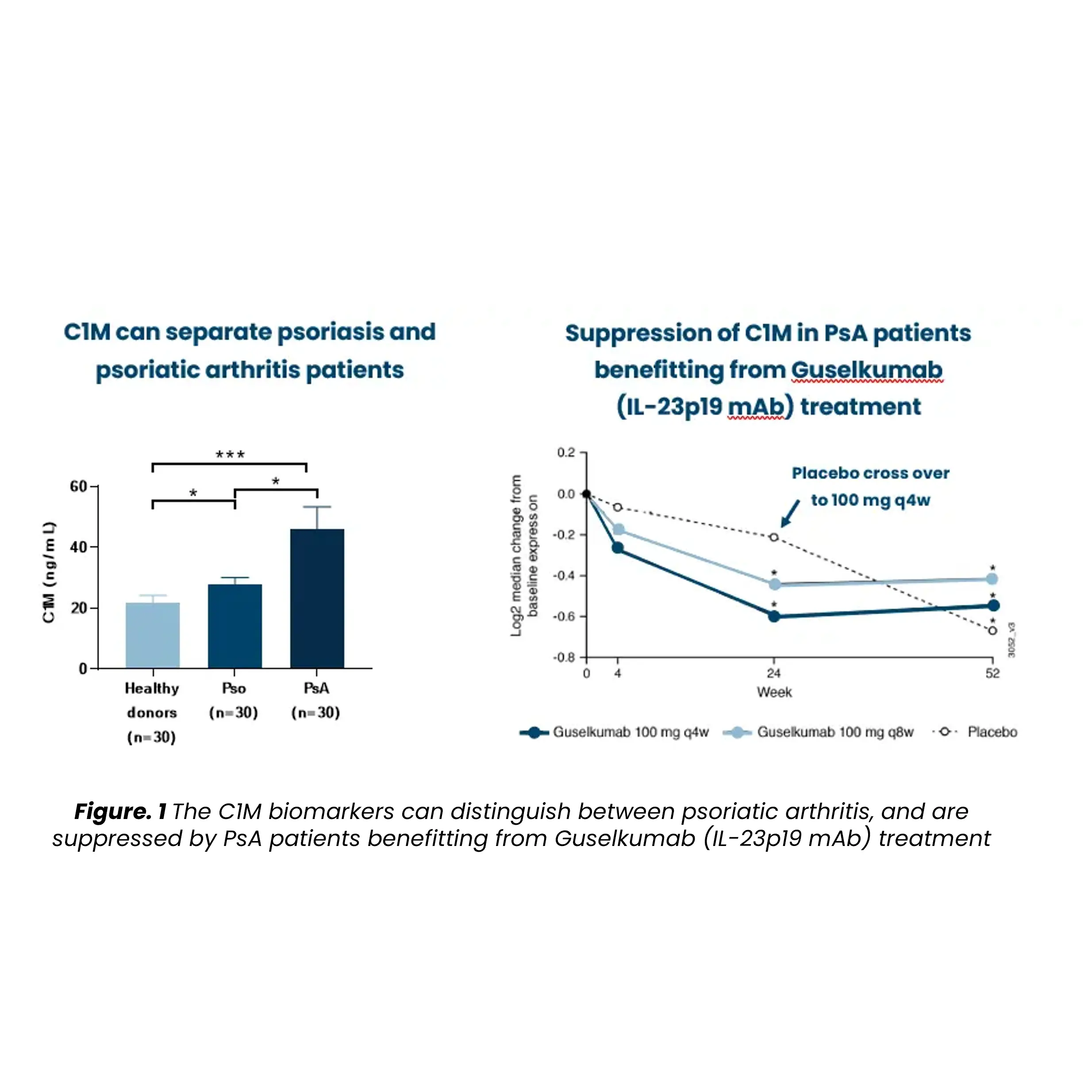Psoriatic arthritis is a chronic inflammatory disease that develops in up to 30% of patients with psoriasis. This is therefore a disease characterized by remodeling of several tissues including, skin, bone, synovium, and cartilage.
Tissue-specific biomarkers, quantifying and monitoring damage of these tissues and immune-cell activity are key advantages when understanding the disease mechanisms and complexity in psoriatic arthritis, and lead to targeted successful treatments.
Did you know?
Despite the recent years development of effective drugs for PsA, there is still several aspects of unmet needs. These needs can be addressed by utilizing biomarkers to improve early diagnosis, prognosis, management of PsA patients, and identification of novel therapeutic targets.







